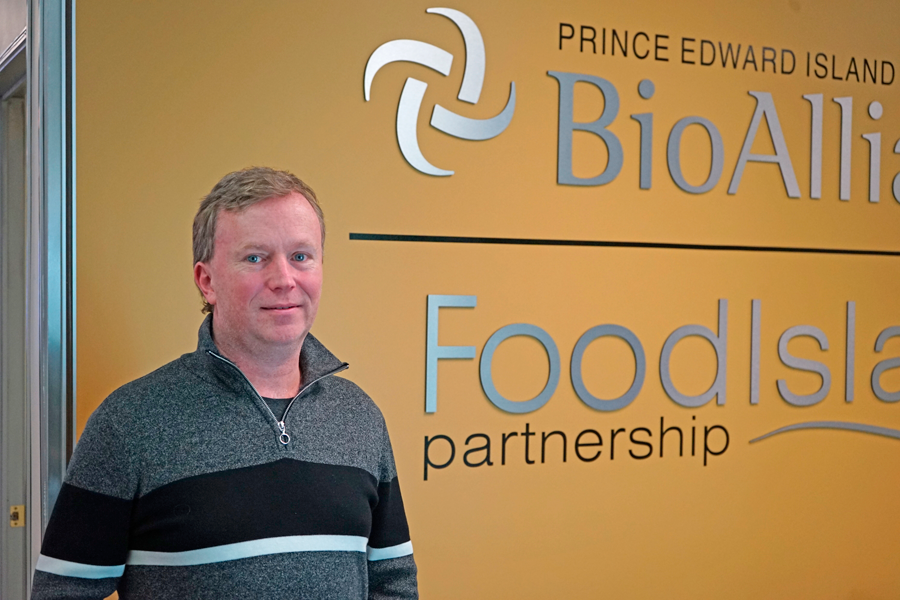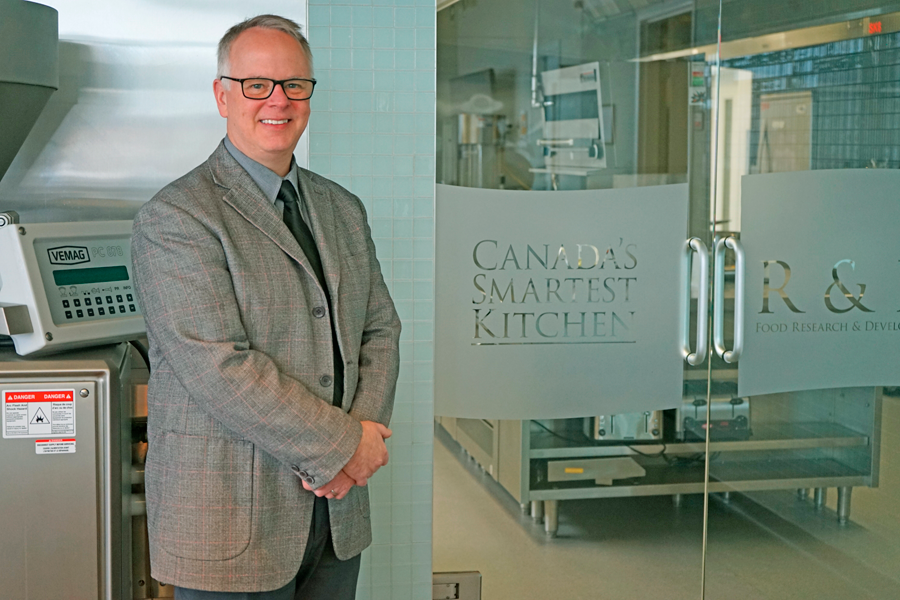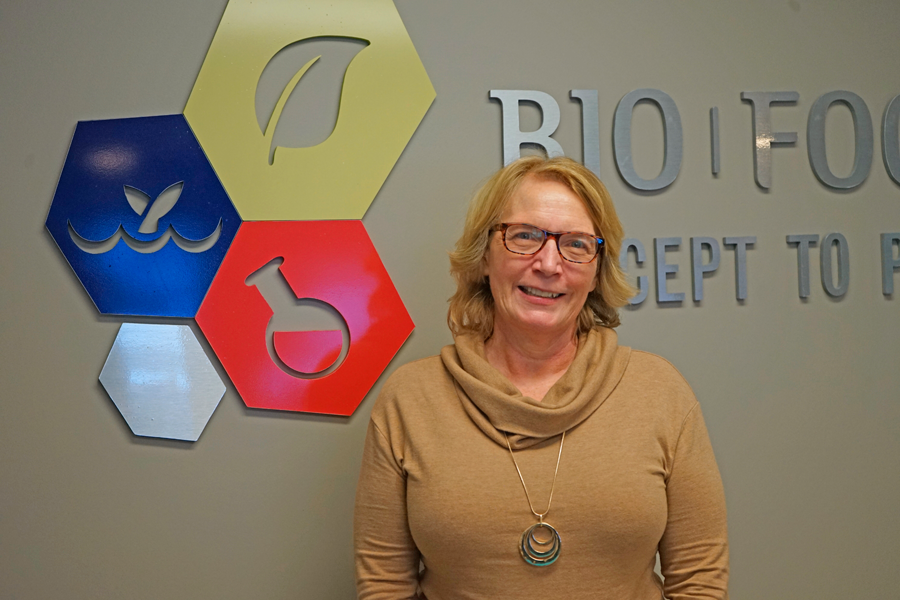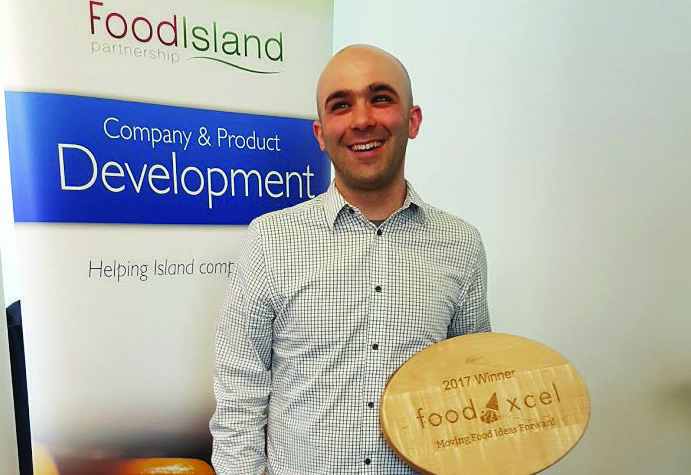Exploring resources available to PEI’s food entrepreneurs
Passion. A passion for food. Passionate about food. A recurring motif when speaking about PEI food entrepreneurs is ‘passion’.
Billed as “Canada’s Food Island”, PEI’s branding is bold. Unlike the Prairies being called Canada’s Breadbasket, or Ontario with its Corn Belt or the wine and fruit regions of the Niagara Valley, PEI has laid claim to food as a whole.
We’ve moved past being the Garden of the Gulf, Spud Island, and The Million Acre Farm, and PEI entrepreneurs are taking that to heart and to the grocery store shelves.
From big international players like Cavendish Farms and ADL, to smaller independent producers like Fresh Start Fauxmage, Maroun’s, and The Handpie Company, food entrepreneurs are tapping into our island’s wealth of food.
Using our primary food sources from land and sea, along with the business resources in place, a food entrepreneur in PEI can find multiple sources of help to launch their products.
“We chose to move to PEI specifically as part of the Atlantic provinces and Canada’s Food Island [marketing],” said Jessica Fritz, co-owner of Maritime Marzipan/Fritz Chocolates/Island Flavours. She and her husband Mike Fritz are originally from Germany and had been living in Toronto. They moved to PEI in 2016 and launched their confectionery business in 2017. She explained that the Island appealed to them on a personal level, as well as a practical one, especially given the resources readily available for food entrepreneurs as well as our compact geography.
“I always said, what we’ve done here, we would not have done in Toronto, even though it’s kind of like a bit more of a unique product, just because you’re one amongst millions in Toronto. Here you have that market, it’s almost like a test market, but you get so much support from the local community. So even if something doesn’t go [well]—there’s always kinks in launching a business—but it’s a forgiving community,” Fritz said. “Here it’s really more that collaborative approach amongst the entrepreneurs, but also a much more personalized connection with your customers because it’s a small island but everyone’s proud of it and everyone is trying to support it.”
Some of that support comes from three key business resources for food entrepreneurs. Food Island Partnership, BioFoodTech, and Canada’s Smartest Kitchen (CSK) are all located in Charlottetown, and offer varying services to new food product businesses. There is a National Research Council office in Charlottetown, which also can coordinate assistance for value-added food producers.

Tyson MacInnis, Food Island Partnership Photo Credit: Cheryl Young/Salty
Food Island Partnership (FIP) is often the first stop for someone looking to take their product out of their own kitchen and get it to consumers on a larger scale. “Our role is to help potentially aspiring food entrepreneurs make some key decisions in terms of where they want to take their idea and their business,” Tyson MacInnis said. As the director of company development at FIP, most new food businesses in PEI meet with him at the start of their journey.
“We’re the business side of food, as opposed to the science or the culinary…from the perspective of how do we help them grow as entrepreneurs,” MacInnis explained. “Our mandate is to help grow the food sector, which is so broad, and when we say the food sector, we’re talking about the value-added side of the sector.”
“Typically a lot of food entrepreneurs start off with a passion for making the product. So that’s usually the starting point, that someone has developed a product idea,” MacInnis said.

Tim McRoberts, Canada’s Smartest Kitchen Photo Credit: Cheryl Young/Salty
Tim McRoberts, director of Canada’s Smartest Kitchen, agreed that passion is a key factor with the entrepreneurs he has seen. “Food entrepreneurs are very passionate. They love food and beverage, the whole social scene, that kind of stuff. I would say a lot of food entrepreneurs are pretty informed. They love learning about food and they see it beyond just being a meal on a plate. A lot of the clients we work with, they tell a story about their product and their vision…so they’re very passionate people.”
That passion is sometimes born out of necessity. Julain Molnar, owner and creator of Fresh Start Fauxmage simply saw a need within the foodscape for tasty vegan cheese.
“I started making vegan cheese. I went on the Buddhist chef site and started making his vegan cheese and it was good and I thought ‘how can I change that, make it better’, with all due respect ‘cause I love that guy,” Molnar said. “I started playing around with it and that became Monk’s Cheddar. And then I came home to PEI…and I went into Riverview Market, and I asked, ‘If you ever carried any artisanal vegan cheese?’ They said ‘no’ and I said, ‘If I made it would you sell it?’ and they said ‘yes’.”
“So I went and met people at the Startup Zone and went in that great program, Food Xcel, and found Joy Shinn, and then I was going.”
Joy Shinn is the business development manager at BioFoodTech, and when asked how many Island food companies BioFoodTech has worked with in the last five years she jokingly replied, “Every one.” All kidding aside, BioFoodTech’s clientele is 90 percent from the Atlantic region, with 65 percent of that coming from PEI. The remaining portion is from national or international companies.
BioFoodTech has been around for over 30 years and it plays a considerable role in developing Island food products. “We can help companies accelerate getting into the marketplace with food and beverage products,” Shinn explained.
“We can provide a leg up in terms of understanding everything that [entrepreneurs] may need to know, provide information and resources for companies to add on to what they already have in terms of their knowledge, capabilities, and skill sets…especially when it gets into some technical or maybe special regulatory or food safety [rules], that people might need support with.”
Some of the many services they offer include food product development, nutritional breakdown analysis, regulatory and labelling assistance, food safety services, and microbial testing.

Joy Shinn, BioFoodTech Photo Credit: Cheryl Young/Salty
“I think we take a very practical approach. So the first thing we look at is ‘what is the product? And where do you want to sell it? And what does that mean for many different things, including shelf life packaging, as well as what regulations might apply, “ Shinn said of BioFoodTech’s services. “But we also just look at what’s in the product and does everything in there need to be in [the product]. You know, if you don’t need to have certain ingredients, you don’t want to spend money doing that. Or, in other cases, you may need some other ingredients.”
Having that expertise is helpful to food entrepreneurs. Fritz needed some assistance with shelf stability of their marzipan products and turned to BioFoodTech for help. “We were already on the market and wanted to take our product and improve it with regards to shelf life…they did some research for us around stabilizers, and something to keep moisture in the marzipan, on a natural level, because we didn’t want anything artificial.”
Scaling up from a product made in a home kitchen to manufacturing and mass production can be difficult, but both BioFoodTech and CSK have resources to help. BioFoodTech is home to two pilot plants, which give food entrepreneurs access to equipment and production facilities that would be too costly to invest in as a start-up.
Currently, the pilot plants are home to a few Island businesses such as Molnar’s Fresh Start Fauxmage.
“I started in the small kitchen and then moved into the pilot plant,” Molnar said. A recent business development has seen her fauxmage product hit the shelves in 38 Atlantic Canadian Sobeys stores. “We went from making 16 [tubs] a day, we’ve got 900 in a day now.” She hopes to scale that even further to 1200.
Getting past one or two stores, or ‘mom and pop’ spots can be daunting for most food producers. McRoberts is blunt about the challenges for food product developers.
“A lot of food entrepreneurs could benefit from more information as to the competitive nature of the industry and the journey that it takes to see your product on a supermarket shelf or being moved beyond the borders of Prince Edward Island.”
The expertise that CSK, FIP, and BioFoodTech offer is proving to be perfect for food product development on PEI. As a ‘food cluster’, there is some overlap between all three, with CSK offering similar services to BioFoodTech and FIP but the three have a collaborative attitude.
McRoberts explained, “When somebody comes in here, for example, and they have an idea, and they want to talk about ‘what are the steps I would take to make that idea become a reality.’ We’re always thinking about things like where does FIP help with this? Where does BioFoodTech help with this? And I feel quite confident that the flip side of that is happening as well.”
MacInnis agreed, “We do come together on a regular basis to review how we can help entrepreneurs more smoothly so that it’s an easier door for an entrepreneur to open and be able to get seamless support…when the time is right we will forward someone on to BioFoodTech or Canada’s Smartest Kitchen and they do vice versa with us. So we’re always working in tandem that way.”
FIP has been the source of two groundbreaking programs in the food industry. The Food Xcel and Food Propel programs have contributed to PEI food success stories. Food Xcel began in November 2016 and gave 39 food entrepreneurs access to workshops, mentoring sessions, industry information, and more. The inaugural Food Xcel program finished with seven entrepreneurs pitching their products to a panel of judges for an opportunity to win a large cash prize from Innovation PEI. Ryan Abdallah won that pitch and you can find his product, Maroun’s Garlic Spread, on Sobeys shelves.

Ryan Abdallah, winner of the inaugural Food Xcel competition Photo credit: Shannon Courtney/Salty
It’s telling that most of those seven entrepreneurs are still going strong with their products. They include Julain Molnar with Fresh Start Fauxmage, Verena Varga with Heart Beet Organics kombucha, Sarah Bennetto O’Brien with The Handpie Co, Marc Bastarache with his Acadian potato product, and Gabriel Mercier and Deidre Doiron with their sheep’s cheese made at Ferme Isle Saint-Jean Farm. As well, Jessica Fritz of Maritime Marzipan participated in the program (but did not pitch). She credits the connections she made with the launch of her food business. A second round of entrepreneurs participated in the Food Xcel program in 2019, and like the first batch, most have continued on to run successful food businesses.
Taking food entrepreneurs to the next level, FIP’s Food Propel program offers additional support and training to established businesses. The intensive one-year accelerator programs provides food business access to mentors, workshops, and training funds. Graduates of the program include The Handpie Co, Upstreet Craft Brewing, Maritime Madness, and East Coast Organic Feed Mill.
Whether it’s sitting down and filling out a one-page Food Business Model Canvas from FIP to start, using CSK’s sensory labs for product taste testing and feedback, or renting specialized equipment from BioFoodTech, a PEI food entrepreneur has multiple places and expertise to draw from when launching a new product. Throw in PEI’s loyal consumers and Canada’s Food Island is well positioned to live up to its moniker.
- WTF - December 2, 2020
- WHAT GOES AROUND COMES AROUND - June 12, 2020
- Salty’s 2020 Gift Guide - December 2, 2020
- A RETURN OF DELIVERY - May 6, 2020
- ICYMI - April 22, 2020
- NEW BIOMASS BOILERS FOR LOCAL GREENHOUSE - March 31, 2020
- TOP CHEF CANADA COMPETITOR FROM PEI - March 4, 2020
- FOOD INSECURE - March 1, 2020
- ACCESS TO FRESH PRODUCE - March 1, 2020
- POLITICS OF SCHOOL FOOD - March 1, 2020


